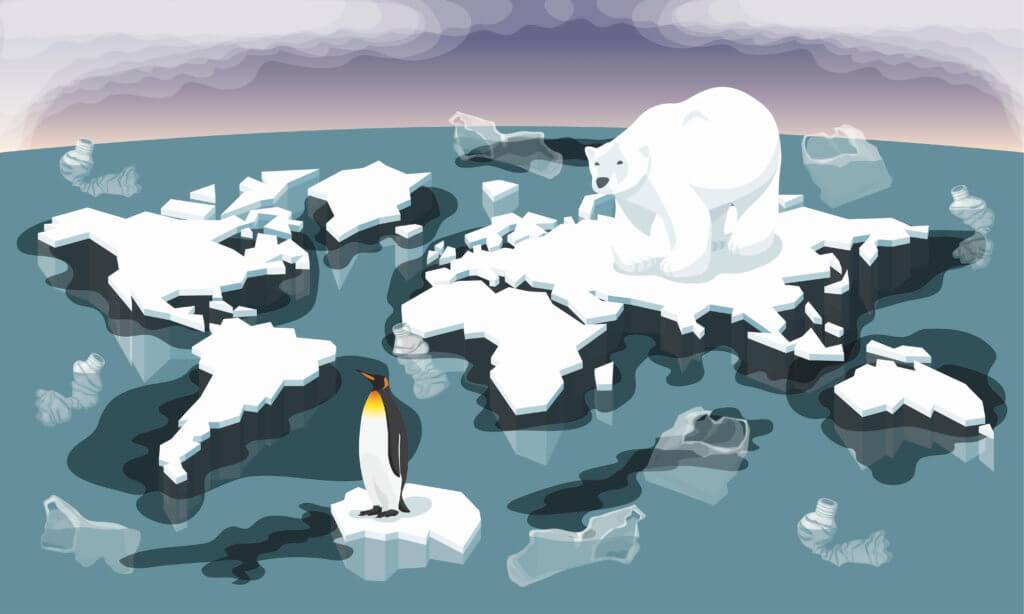Despite affecting some of us sooner and more keenly than others, the impact of climate change will be felt universally. As such, the responsibility of counteracting its progress is not just the sole domain of scientists, NGOs or government agencies. Every person and organisation has a part to play, and this includes family businesses.
Geoff Mulgan is an advocate for the kind of societal transformation required to deal with climate change.
Mulgan became increasingly involved in social and environmental advocacy as a reporter and thinktank founder through the 80s and 90s, but change became his profession when he ran the British Government’s Strategy Unit in the early 2000s. Since then, he has led foundations, worked as an advisor to governments around the world and written numerous books on social innovation and government.
According to Mulgan, social media, despite its ability to organise people and spread awareness, has also hindered climate change action by sowing scepticism with fake news. The apathy it creates is immensely problematic; the most innovative work happens when businesses, governments and private citizens work in collaboration to solve climate-change-related issues.
We spoke to Geoff Mulgan to learn more.
How has public awareness regarding climate change shifted over time?
Public awareness around climate and social policy change has come in a series of waves. One of the first influenced leaders such as Margaret Thatcher in the 1980s. The second came in the 2000s when emerging science left no doubt that climate change was a pressing issue around the globe.
Unfortunately, the 2008 global financial crisis served as a distraction – many businesses and governments lost focus on climate change. Instead, they turned their attention to short-term survival.
In the last few years, however, climate change has re-entered the public consciousness in a third wave driven by activists such as Greta Thunberg. Businesses and governments around the world now realise that climate change is the single greatest threat to the global economy.
“…This is the fundamental challenge of leadership. The world needs leaders who take time to learn the facts, have their priorities straight and can stay focused.”
Why are we so slow to react then? How does social media feed into climate change inaction?
In my opinion, the tragedy of climate change is that it came into significance at a time when digital technologies and social media also became prevalent, along with fake news of all kinds.
The saturation of information in today’s society makes it difficult for people to distinguish fact from fiction. As a result, we are often misinformed or uneducated on certain topics, which encourages scepticism. It also makes it challenging for people, as well as businesses, to focus on the long term. The emphasis is on the next moment, and topics such as climate change are overlooked or not marked as a priority.
This is my main area of expertise, collective intelligence: how we use data, artificial intelligence and technologies to encourage and help businesses and societies to behave in intelligent ways to benefit the world we live in as well as people.
Arguably, this is the fundamental challenge of leadership. The world needs leaders who take time to learn the facts, have their priorities straight and can stay focused.
We are comforted by the thought of scientists working towards an array of technological solutions. How realistic is our belief in the ‘tech fix’?
Some of our belief is justified; technology is, undoubtedly, part of the answer. However, although the shift towards new energy sources and transport systems revolves around technology advances, technology alone will not be enough. A shift in consumer behaviour, as well as changes in accepted societal norms, are also required.
The ‘tech-fix’ ideal has been around for a while now. When governments met to discuss climate change 20 to 30 years ago, they always agreed that more R&D should go into technology and renewables. This was promising in theory, but in practice, the underlying trends were hardly affected, with relatively little delinking of economic growth and energy and material usage since then.
Who is responsible for counteracting climate change then?
We all are. The most interesting and innovative work happens when the world’s leading technologists and business people collaborate with governments. This needs to happen more, especially in industries such as fashion and food, both locked into an extremely wasteful and unsustainable consumer model.
I often use the analogy of a car to explain the challenge of changing society: when cars were first introduced, they were problematic; roadways were not sufficiently equipped for them. They only became mainstream once a whole raft of changes, such as roads, signs and driving lessons, were introduced. This principle can also be applied to climate change: it will require time and conscious effort for society to adapt in response, but both businesses and governments must take accountability.
[ms-protect-content id=”4069,4129″]
Where do you see the change coming from?
I think that we are going to see increased militancy around these issues from young people.
A great example of this militancy is the SUV – an automotive disaster from a climate change point of view. Although SUVs used to be immensely popular, there is currently an increasing stigma around owning one, especially among young people. There are even lively discussions about whether tax disincentives should be imposed on buyers. How far this will actually go remains to be seen, but it will be interesting to watch how businesses respond as these issues become more mainstream.
“Businesses and consumers alike are beginning to make choices that steer society away from this type of lifestyle.”
What kind of culture is necessary for this type of societal change to take root?
Change requires a sympathetic, caring culture. As we see an increasing number of forest fires in Australia and more islands in the Pacific come under threat because of rising sea levels, attitudes will begin to change. In contrast to a decade or two ago, owning multiple carbon-emitting cars and continuously flying around the world for meetings that could be held remotely is regarded with increasing disapproval. Businesses and consumers alike are beginning to make choices that steer society away from this type of lifestyle.
How are family businesses responding?
In terms of family businesses specifically, many members of the older generation – i.e., the baby boomers in positions of power – are still struggling to understand climate change and, unfortunately, consider the financial implications of responding to it as paramount. This attitude often clashes with the views of younger generations and can thereby create financial tension.
What can we do to precipitate the level of societal change required?
Counteracting climate change will be complicated, but the most important thing over the next ten years with regard to being environmentally friendly is to be as systematic and rigorous as scientists have been for the last 20 or more years.
Significant investment has already been made in clean tech and green tech, which needs to continue. Now, however, investors must also become social innovators by looking for projects that combine technology with a behaviour change that complements societal change. For a start, these will include more efficient ways of running a home, eating and travelling. The possibilities, however, are endless.
[/ms-protect-content]

